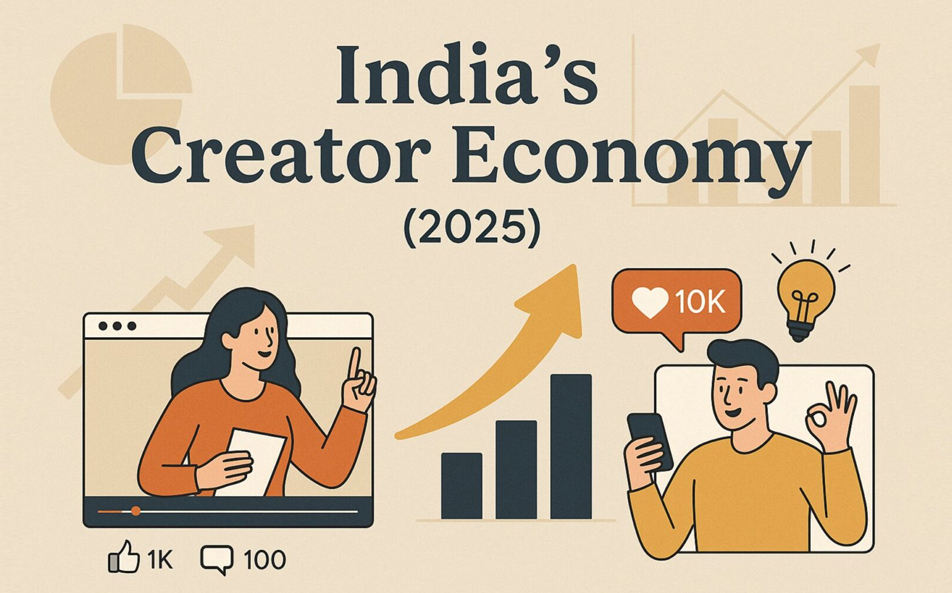
The United Indian

India, a land of bustling bazaars and ancient traditions, is witnessing a remarkable transformation. The clinking of coins and rustle of crumpled notes are giving way to the tap of smartphones and the whirring of digital transactions. This transformation has been a result of concerted efforts by the government, technological advancements, and the evolution of financial institutions. This financial inclusion is empowering millions and reshaping the economic landscape.
Defining What is Financial Inclusion in India
Financial inclusion refers to the accessibility and availability of financial services to all individuals, regardless of their economic status. It aims to bring the unbanked and underbanked population into the formal financial system. In simple terms financial inclusion means to offer everyone with the best methods and tools of financial management.
Significance of Financial Inclusion in India
The importance of financial inclusion in India goes beyond individual benefits. It contributes to economic growth, poverty reduction, and the overall development of the nation.
Evolution of Financial Landscape in India
Prior to the dawn of financial inclusion, India's vast unbanked population faced significant challenges. Access to basic financial services like savings accounts, credit, and insurance was limited, particularly in rural areas. This exclusion hampered economic growth, perpetuated poverty, and stifled individual entrepreneurship. Recognizing these hurdles, the Indian government, in collaboration with the Reserve Bank of India (RBI), embarked on a multi-pronged approach to bring the unbanked into the fold. It made everyone realise the importance of financial inclusion and how technology could be used to economic advantage.
The Pradhan Mantri Jan Dhan Yojana (PMJDY) emerged as the cornerstone of this mission. Launched in 2014, it aimed to provide every Indian household with access to a bank account. Within a few years, over 430 million accounts were opened, marking a monumental achievement in financial access. This surge was further fuelled by the rollout of Aadhaar, a unique biometric identification system, which streamlined account opening and facilitated direct benefit transfers (DBTs).
Emergence of Digital Transactions
With basic accounts established, the focus shifted towards digital payments. Digital payment platforms like UPI (Unified Payments Interface), Paytm, Google Pay and RuPay has been a game-changer. India has gradually witnessed a surge in online transactions, with digital payment platforms becoming increasingly popular and ease of access to other methods and tools of financial management. This shift has not only streamlined financial processes but has also opened up new avenues for economic participation.
Impact on Small Businesses
Small businesses, often hindered by the limitations of cash transactions, have experienced a positive impact through digital payments. It has facilitated smoother transactions, improved record-keeping, and enhanced financial transparency.
Accessibility and Convenience for Rural Population
One of the notable benefits of financial inclusion in India is the increased accessibility of financial services in rural areas. Mobile banking and digital wallets have brought banking services to the fingertips of individuals in remote locations.
The Transformative Power of Financial Inclusion
Access to financial inclusion opens up a wealth of advantages for both people and the country. Imagine women confidently managing their savings through digital accounts, remote villages bustling with cashless transactions, and rural entrepreneurs gaining access to credit to grow their farms. Financial inclusion promotes economic growth, gives people more power, and closes the gap between urban and rural areas. It increases transaction transparency, lowers poverty, and encourages entrepreneurship. Click by click, this digital revolution is opening the door to a more prosperous and equal India.
Understanding the importance of financial inclusion
Imagine living in a society where opportunity knocks on every door, everyone is heard, and imperceptible barriers are removed. The secret to savings, credit, and dreams is all what is financial inclusion in India for everyone all about. It is the antidote to destitution, the lifeblood of small companies, and the link between rural and urban areas. Financial inclusion aims to create a society where everyone participates, where clicks create a brighter future, and where prosperity is no longer a privilege but a promise. It does this by empowering women and boosting economies. It's about releasing a country's full potential, one tap at a time.
Challenges and Solutions
Technological Barriers
While the digital transformation has been rapid, challenges such as limited internet access and technological literacy persist. Addressing these barriers requires innovative solutions and infrastructure development.
Financial Literacy Programs
To bridge the gap in understanding digital financial services, there is a need for comprehensive financial literacy programs. Educating individuals about the benefits and risks associated with digital transactions is crucial for sustainable financial inclusion.
Regulatory Framework
A robust regulatory framework is essential to ensure the security of digital transactions and protect the interests of consumers. Striking a balance between innovation and regulation is key to fostering a trustworthy financial ecosystem.
Banking the Unbanked
Expansion of Banking Services
Traditional banks are expanding their reach to previously underserved areas, establishing branches and providing basic banking services. This is the best methods and tools of financial management. It has been instrumental in bringing more individuals into the formal financial system.
Mobile Banking and Financial Apps
The rise of mobile banking and financial apps has empowered individuals to manage their finances on the go. Mobile-based services have become a catalyst for financial inclusion, especially among the younger generation.
Microfinance Institutions
Microfinance institutions play a crucial role in providing financial services to individuals in the informal sector. Their focus on small loans and financial assistance has empowered entrepreneurs and small business owners.
Case Studies
Success Stories of Financial Inclusion
Several success stories highlight the benefits of financial inclusion for businesses, individuals and communities. These stories serve as inspiration and showcase the transformative power of inclusive financial practices.
Real-world Examples of Transformation
Examining real-world examples of businesses and regions that have embraced financial inclusion provides valuable insights into the challenges faced and the strategies employed for successful transformation.
Future Trends
Innovations in Fintech
The future of financial inclusion in India is closely tied to technological innovations in the fintech sector. Blockchain, artificial intelligence, and other emerging technologies are expected to further revolutionize the financial landscape.
Potential Impact on Economic Growth
As more individuals and businesses become part of the formal financial system, the potential for economic growth increases. Financial inclusion contributes to a more robust and dynamic economy and that is one of the biggest benefits of financial inclusion in India.
Government Strategies for the Future
Continued government support and strategic initiatives will be crucial for sustaining and expanding financial inclusion. The alignment of policies with the evolving needs of the population is key for long-term success.
Perplexity in Financial Inclusion
Balancing Innovation and Security
As financial services become more innovative, there is a need to balance the benefits of innovation with the importance of security. Striking this balance is crucial to maintain trust in digital transactions.
Addressing Concerns of Vulnerable Groups
Vulnerable groups, such as the elderly and those with limited technological literacy, may face challenges in adapting to digital financial services. Tailored solutions and support systems are necessary to address their concerns.
Creating Inclusive Financial Policies
Policies promoting financial inclusion should be inclusive and consider the diverse needs of the population. Tailoring policies to address specific challenges faced by different demographics ensures a more comprehensive approach.
Burstiness in Financial Inclusion
Rapid Technological Advancements
The burstiness in financial inclusion in India is evident in the rapid advancements in technology and the quick adoption of digital solutions. This dynamism creates opportunities for individuals and businesses to embrace innovative methods and tools of financial management.
Response of Financial Institutions
Financial institutions are responding to the burstiness in financial inclusion by adapting their services and offerings. The competition to provide seamless and user-friendly financial solutions benefits consumers.
Opportunities for Entrepreneurs
The burstiness in financial inclusion creates opportunities for entrepreneurs to develop innovative solutions that cater to the evolving needs of the market. Start-ups focusing on financial technology are thriving in this dynamic landscape.
Prospects for the Future
The prospects for the future of financial inclusion in India are promising. Continued innovation, enhanced financial literacy, and strategic policies will further propel the nation towards a more inclusive and digitally empowered economy.
Conclusion
Understanding what is financial inclusion in India & its importance gives an insight on how the economy has revolutionised. The journey from cash to clicks in India has been marked by significant achievements in expanding financial access, improving convenience, and fostering growth. The collaborative efforts of government, financial institutions, and technological advancements have driven this transformative journey.
Read more in Economy
Jul 17, 2025
TUI Staff
Jun 24, 2025
TUI Staff
Jun 22, 2025
TUI Staff

Stay Tuned with The United Indian!
Our news blog is dedicated to sharing valuable and pertinent content for Indian citizens. Our blog news covering a wide range of categories including technology, environment, government & economy ensures that you stay informed about the topics that matter most. Follow The United Indian to never miss out on the latest trending news in India.
©The United Indian 2024















